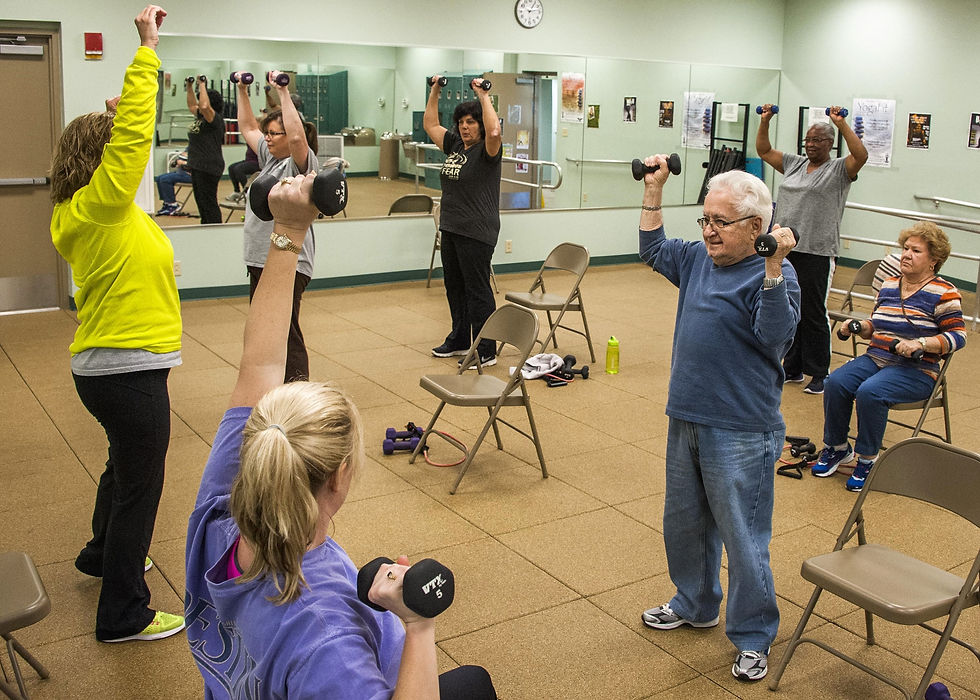Considerations When Training Older Clients
- NCEF
- Mar 22, 2020
- 3 min read
By Patricia Dawson, NCEF Tutor and Course Leader for the NCEF Active Ageing Specialist Module
The first thing to consider when training an older client is can they do the exercises in your programme, for instance, you must adapt any exercise to their needs and abilities. The second consideration is to make the exercises as enjoyable as possible to ensure your client will stick with the programme. Nobody will continue with something they don’t enjoy - you need to encourage your client to keep up the training long after they have achieved their initial goal whether it be a health concern or an important social occasion. So how do you do this?

One way to make exercise successful is through positive reinforcement only, giving no negative feedback. Keep thinking of what a person can do as opposed to what they can’t do. There are certain perceptions/misconceptions that abound regarding the training environment both from a client’s and fitness professional’s point of view that needs to be addressed. Their personal prejudices regarding exercise can hinder an effective programme. For instance, what does the client really think of the gym/exercise class environment, or what does the instructor really think of the inactive/overweight individual? This “gap” needs to be bridged through good communication and education skills.

Older people are not made of eggshells, they won’t break unless the Instructor does something unsafe. Keep up to date with the latest research. Knowledge is power and the internet has all the latest findings on fitness. There is no excuse nowadays for not being cognisant of any new developments in the fitness industry.
Think functional fitness when you are dealing with an older client and ask yourself “what am I training this person for?” Is it a health related issue or is it a functional issue? Most people of a certain age are more concerned with their health than body image. Also, they need to keep mobile to keep mobile to keep functioning into old age.
Any training should be a HEPA session (health enhancing physical activity) and should concentrate on the health related components of fitness. Mobility, aerobic, strength and balance, as opposed to the skill related components. Skill related components like reaction-time, agility etc. will follow if you address the health related ones first. Remember the body doesn’t know whether it is climbing the stairs at home or in a gym. It just computes the intensity and impact of the muscle movement.
Finally, remember couch potatoes are people too. It’s up to you to make them sprout!

Train to become an Active Ageing Leader by completing the NCEF Active Ageing for Older Adults specialist module. The Active Ageing module will give you the skills, knowledge and competencies you need to design group exercise classes for dependent chair based and independent active older adults. You will prescribe progressive exercise programmes suitable for independent older adults of varying levels of fitness in a gym, leisure centre or community environment, enhancing the activity levels of our active ageing population in a fun and safe manner.
Modules include applied anatomy & physiology, understanding non-communicable diseases such as cardiovascular disease, osteoporosis, osteopenia, Alzheimer’s, Parkinson’s etc., client screening, guidelines for referral, programming, contraindications, class planning and more.
There is no contact time involved with this specialist module, it is completely e-learning to be completed from home through the NCEF e-learning hub. Active Ageing is available in all academic semesters Summer, Autumn and Spring. Click here for more information.






Comments